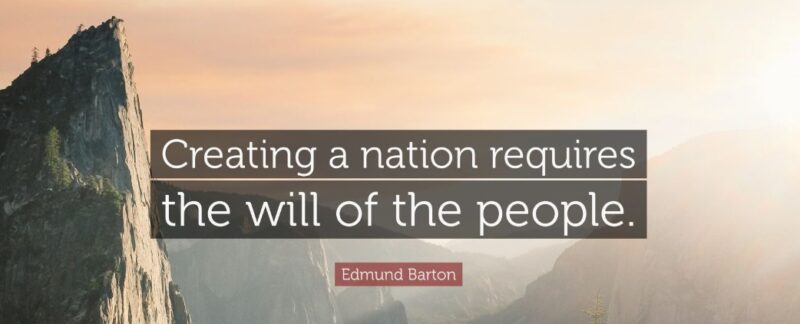Direct Democracy, sometimes called “Pure Democracy” is a form of democracy in which laws and policies can be determined by the people themselves, rather than by representatives who are elected by the people. I intend to use the unique system of Direct Democracy to revolutionize politics in “St. Catharines”, Ontario and the Nation. My approach shifts the focus away from traditional party politics and instead centers the conversation on the needs and desires of the people. It will foster a more inclusive, participatory and innovative approach to governance.
I will create an immersive online platform that will allow residents of St. Catharines and Ontario to participate in policy-making decisions with me. You will also be able to create and share your own policy proposals with myself, engage in discussions, and we can all vote on these policy proposals together. This would not only increase public engagement but also provide a platform for the myself to learn and showcase the values and principles of the residents involved.
Residents of St. Catharines and Ontario will be empowered to participate in choices that directly affect them through the implementation of a moderate form of direct democracy.
Advantages of Direct Democracy
Increased Public Participation: With my Direct Democracy, residents like yourself can actively express their thoughts and take part in some decision-making processes, which will increase public engagement.
Enhanced Accountability: As decisions can be made by you under direct democracy. There will be less room for corruption and self-serving behavior on the part of myself or future elected officials, increasing my accountability to the people of St. Catharines and Ontario.
Greater Transparency: Transparency is encouraged by direct democracy since decision-making procedures and results are transparent to the general public. This will contribute to the political system and a growing sense of trust in it.
Reflects the Will of the People: As a resident of St. Catharines and Ontario, you can have a direct voice in decisions that impact you, as direct democracy more properly represents the Will of the People.
Reduces Partisan Politics: Political parties and special interest groups will have less power under direct democracy since choices are determined by you, the general public instead of through party-dominated legislative processes.
Encourages Civic Responsibility: I know that direct democracy will foster a sense of civic duty and community involvement by incorporating you, the people of St. Catharines and Ontario in the legislative process. Residents, in my opinion, are more inclined to participate actively in their community’s governance.
Prevents Concentration of Power: Direct Democracy helps prevent the concentration of power in the hands of a few individuals or groups, ensuring a more equitable distribution of political influence.
Adaptive and Responsive Governance: Direct democracy makes government more dynamic and flexible by enabling it to adjust and change more quickly in response to the needs and wishes of the people.
Promotes Education and Awareness: When choosing how to vote, you can make educated selections thanks to direct democracy. It encourages public education and understanding of political, social, and economic issues.
Empowers More Diverse Views: Direct democracy will give underrepresented groups a range of perspectives, and a voice in the decision-making process, resulting in more inclusive governance.
Modern Applications of Direct Democracy
While direct democracy was practiced in ancient Athens, today it is mostly seen in a limited form, through tools like referendums, initiatives, and recalls. These mechanisms allow citizens to influence legislation or remove officials from office, but they don’t replace representative democracy entirely. Some notable examples of direct democracy in modern politics include:
- Switzerland: Perhaps the most well-known modern example, Switzerland frequently uses referendums and initiatives to allow citizens to vote on a wide range of issues, from economic policy to social changes. Swiss citizens can propose amendments to the constitution or challenge laws passed by parliament.
- United States: Certain U.S. states, such as California, make extensive use of ballot initiatives and referendums. Voters can propose laws or amendments, as well as repeal existing legislation, particularly at the state and local level. The recall election of a governor, such as the attempt to recall California Governor Gavin Newsom, is a form of direct democracy.
- Italy: Italy allows citizens to call for referendums on repealing laws or parts of laws. Over the years, various social and economic issues have been put to a popular vote, including divorce and the structure of the country’s electoral system.
As an independent candidate, I am committed to creating a wide range and comprehensive set of policies designed to protect and empower the residents of our community. At the heart of my platform is a vision for economic protection that prioritizes the needs of local industries and workers. By restricting unnecessary imports and promoting domestic production, I will work to rebuild and strengthen our economy from the ground up, creating jobs and opportunities that benefit local businesses and families. It is time to place the well-being of our citizens ahead of corporate profits and foreign competition, and I will ensure that we invest in the resilience and sustainability of our local economy.
In addition to economic reform, I am deeply committed to social justice and the creation of programs that promote a more equal and just society for all. This means reforming outdated systems that continue to fail marginalized communities, ensuring that everyone—regardless of background—has access to fair treatment, opportunities, and support. We will address systemic inequalities in housing, healthcare, education, and employment, and work toward closing the gaps that have left so many behind. By investing in community-based solutions and fostering collaboration between public and private sectors, I will champion social programs that uplift the most vulnerable and create lasting change.
My platform is centered on economic equality, growth, and social justice reform, but it also places a strong emphasis on community engagement. I believe that governance should be a two-way conversation, where the voices of residents are not only heard but actively shape the policies that affect their lives. By fostering a culture of participation and transparency, we can work together to address the many concerns of those who feel abandoned by the current political landscape. Whether it’s affordable housing, healthcare access, public safety, or support for local entrepreneurs, I am dedicated to ensuring that the needs of the people are at the forefront of every decision made.
The policies I am putting forward represent a new and compelling alternative to the status quo in politics. Unlike the traditional parties that have become increasingly disconnected from the everyday realities of working families, my approach is moderate, balanced, and grounded in common sense. I understand the importance of economic growth, but I also know that growth must be inclusive. My focus will be on developing practical solutions that create jobs, raise incomes, and reduce poverty—while ensuring that our social safety nets are strong and capable of supporting those in need.
Voters who are tired of partisan gridlock and broken promises will find in my candidacy a refreshing choice—one that offers thoughtful, pragmatic solutions to our most pressing challenges. I represent a movement that is not beholden to the interests of big business or political elites, but rather to the people I seek to serve. Together, we will build a community where economic opportunity and social justice are not at odds, but work hand in hand to create a brighter, fairer future for all. This is a vision of governance that is rooted in accountability, driven by compassion, and focused on results.
It’s time to leave behind the politics of division and embrace a future where everyone—no matter their background or circumstances—has a stake in the prosperity and progress of our society.
And this is what I mean when I say – Your Voice Always Matters!
.
.
.
.
.

